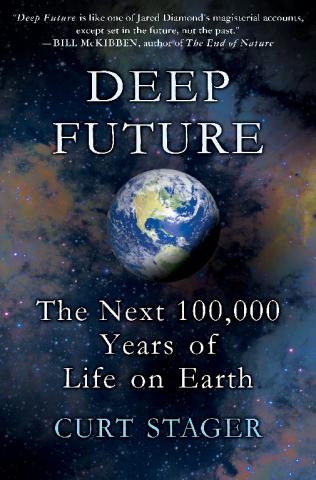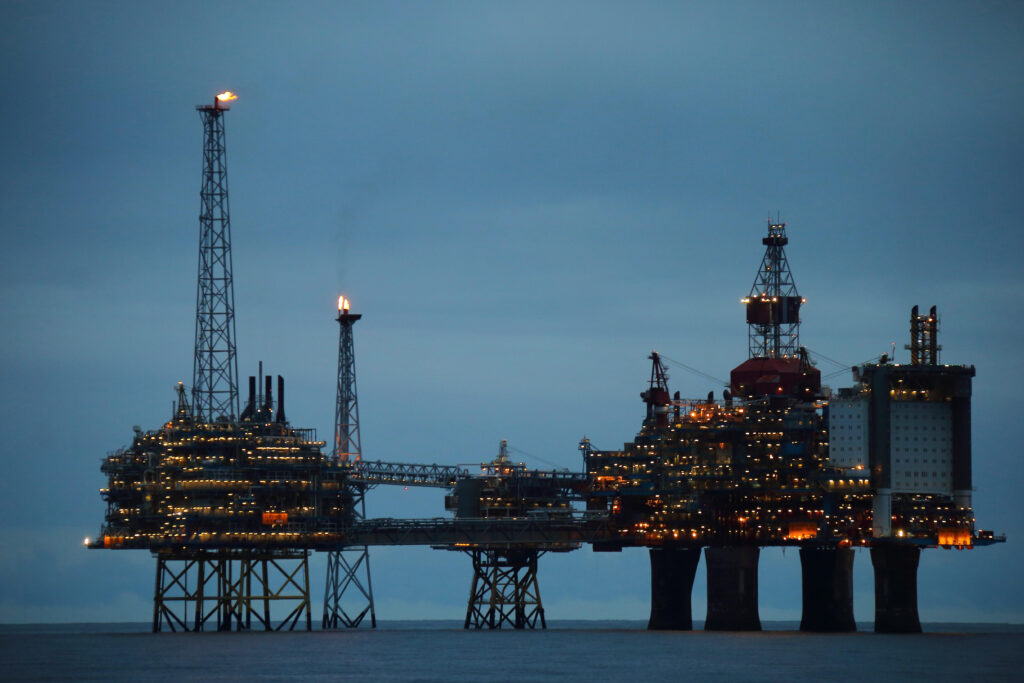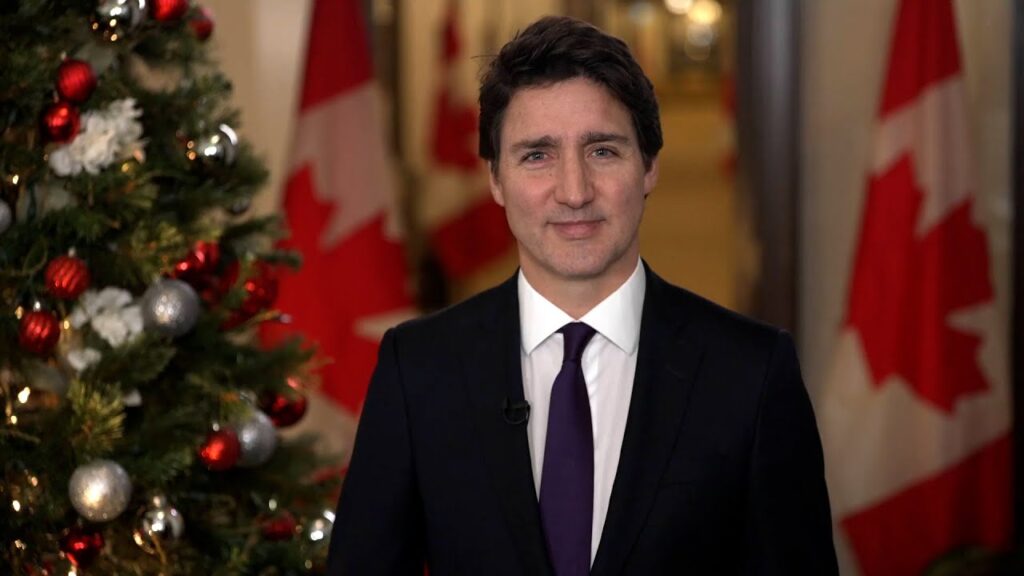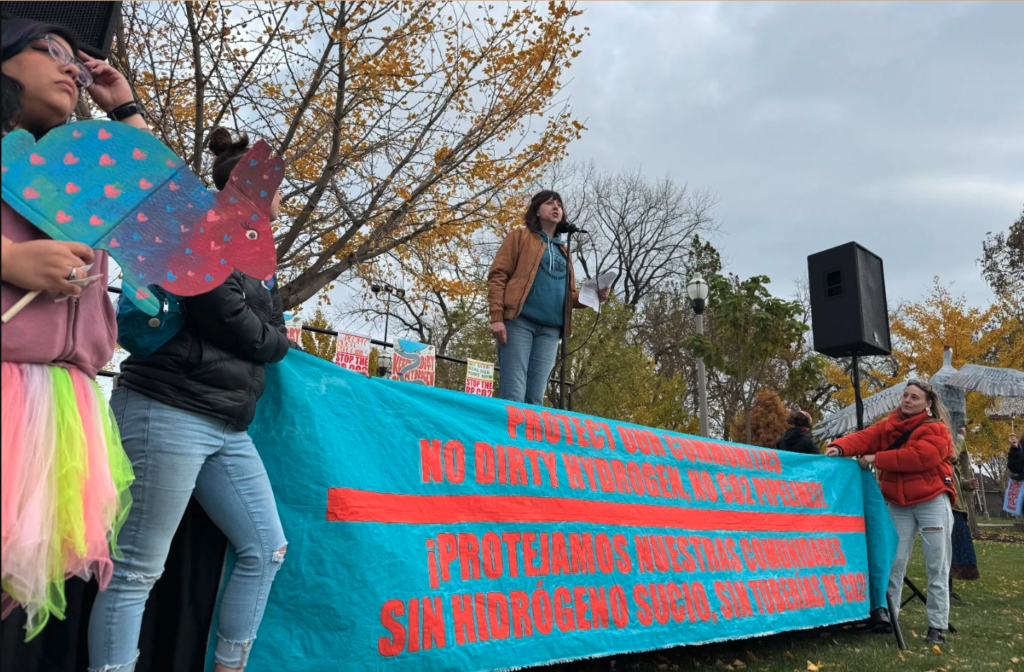Part 2 of my interview with Dr. Curt Stager, author of Deep Future: The Next 100,000 Years of Life On Earth. Don’t forget to check out Part 1 of the interview from yesterday. Answer the trivia questions at the bottom of this post for a chance to win a free copy of Deep Future.
BD: On pgs 239-241 of the Epilogue, you talk about your discomfort with what you call “aggressive activist stances among prominent scientists,” but at DeSmogBlog we’ve heard from dozens of climate scientists who are simply fed up with lawmakers and the media ignoring the science or hiding behind “Climategate” myths. In a world where about half the lawmakers in the U.S. completely reject the preponderance of peer-reviewed climate science confirming manmade global warming, how can a scientist remain silent and simply press on while being ignored?
CS: Scientists are human beings who reflect a diversity of opinions and attitudes. Of course most of us are fed up with this ridiculous situation, so it’s not surprising that you hear from so many who express those concerns. I’m fed up, too, but I’m also not alone in my preferences for refraining from “aggressive activist stances.” I do so because I value science itself more than any individual topic that it addresses.
I consider science to be one of the most valuable inventions of human civilization, and I recognize how precious and vulnerable to corruption it is as one who believes in objective reality, the fallibility of human perception, and the need for objective methods of seeking truth. I also recognize that public trust in science itself depends heavily upon trust in the objectivity of those who pursue it. We must walk a fine line between defending truth and trying to force it on other people, and I personally choose to take a cautious approach in walking that line. {C}
On the one hand, I never shrink from explaining and defending conclusions that are well supported by scientific evidence when challenged in public and private settings. But when I’m presenting myself as a scientist I prefer to stand firmly on neutral ground in hopes of serving as a source of objective information to anybody who desires it, much as the Red Cross offers medical services to any and all on a field of battle. Some of my colleagues choose to act otherwise, but when they do so it sometimes makes me uncomfortable because they risk dragging the rest of us, as well as science itself, into the conflict with them, just as surely as a Red Cross medic would do so by taking up arms on a battlefield. I don’t know who’s really right on that score; all I can say about it here and now is what I feel personally.
——
BD: How appealing is it going to be for young people to pursue (much needed) careers in the climate sciences if they see this generation of climate scientists being mocked, and even attacked and threatened physically?
CS: I don’t consider it much of a problem. If anything, I think the drama and visibility of these conflicts may appeal to many young people who relish the thought of dedicating themselves to a heroic struggle against the problems of the world. Having climate science so brightly illuminated in the media spotlight can indeed be intimidating, but it can also foster a powerful sense of relevance in young folks who may consider it as a career.
When I first went into paleoclimatology in the early 1980s, my fellow grad students and I often felt like our work was irrelevant to most of humanity and resigned ourselves to a future of nerdy obscurity. Little did we realize that our field would soon contribute so significantly to a worldwide debate. Entering the field today is more exciting in that sense, because you’re more likely to assume that your work could reach a wide audience.
—–
BD: You talk in the book about the importance of leaving some of the remaining fossil fuels in the ground – not so much for the sake of our current efforts to curb global warming – but to equip the “people of the future to burn to stave off future ice ages and prevent the crushing devastation of migrating ice sheets.”
CS: I do this somewhat tongue-in-cheek, in order to show how consideration of the full story of our long-term impacts on global climate can help us to find win-win strategies for the future. Our greenhouse gas emissions will stick around long enough to prevent the next ice age 50,000 years from now, and emitting more of them could well prevent more ice ages much deeper in the future. One could reasonably argue that ice ages are bad news for Canada and northern Europe, because having your landscapes bulldozed by mile-thick slabs of ice amounts to total environmental obliteration. But does this mean that we should go ahead and trigger a super-hothouse in coming centuries in order to benefit unborn generations hundreds of millennia in the future? Not at all.
If we leave the remaining fossil fuels in the ground now – i.e. if we “save the carbon” – by switching to alternative energy sources as soon as possible, then we’ll head off the most severe ecological effects in the near term and save ourselves from the suffering that could otherwise accompany the final depletion of cheap petroleum. When new ice ages start to roll around in 130,000 AD and beyond, our descendants will then have the option, if they so choose, of burning some of those fossil fuel reserves in order to warm the planet enough to prevent the ice sheets from forming. Of course, we can only guess whether they’ll do so or not, but at least we won’t have made the decision for them. So there you have it; one more, only half-joking reason to stop our fossil fuel emissions.
——
BD: Your views on future survival of humans are far more optimistic than fellow Adirondacks region resident James Howard Kunstler in his book The Long Emergency. What do you think of dire predictions like his for the not so distant future?
CS: My “optimism” for human survival is not to be confused with a belief that there will be no human suffering in the future. Like Kunstler, I suspect that civilization as we know it may indeed be threatened with imminent collapse. But in Deep Future I focus on sheer survival of the human species as a way of demonstrating my conviction that a long-term perspective on our climatic impacts is worth considering seriously.
If nobody will be around to experience these changes, then who cares what climates will be like in 100,000 AD? I’m sure there could be extreme human suffering coming our way, perhaps including large die-offs, but I’m also convinced that at least some of our descendants will pull through somehow.
Climate change is not going to kill every last one of us; humans are too resilient for that, having lived everywhere from floating sea ice to burning deserts for thousands of years even without modern technology and despite massive, abrupt environmental shifts of natural origin. In addition, regions such as Greenland may actually become more habitable to humans in a warmer world, offering refuges to at least some remnant populations. The worst plagues in history didn’t kill every last human, even in the absence of modern medicine, thanks to genetic variability and natural selection.
Astrophysicists argue that there are no rogue asteroids large enough to smash and fry the entire surface of the Earth that are on potential collision courses with us within the next 100,000 years. And I’m willing to gamble, with fingers crossed, that we’re unlikely to launch a large enough nuclear conflict to kill every last person on the planet; it would require an all-out international conflagration, coordinated in such a way as to make the entire surface of the Earth a kill zone.
Having considered these main dangers and found them wanting, I find no rational support for arguments that nobody will be here to experience the consequences of our climate disruptions in the deep future. We personally might not want to live in that kind of future world, but someone is almost certainly going to have to do it, nonetheless. One can only hope that they consider the altered Earth normal enough, having been born into it, to value it as much as we favor our own present-day version.
—–
Thanks again to Deep Future author Curt Stager for taking the time to answer my questions so thoughtfully.
The trivia challenge is now over, thanks everyone!
If you’d like to receive a free copy of Deep Future please email me, Editor [at] DeSmogBlog [.] com, with the correct answers to the following three trivia questions about Curt Stager. The first two people next person* to answer all three questions correctly win a free copy of “Deep Future: The Next 100,000 Years of Life On Earth.”
1) What is the name of Dr. Stager’s weekly radio show?
2) Who did Curt play the song “Blackbird” for on YouTube?
3) Which lake was the focus of Dr. Stager’s 2003 summer field course?
*Congratulations to Michael Noble, Executive Director of Fresh Energy, @NobleIdeas on Twitter, and publisher of MidwestEnergyNews.com who was the first person to correctly answer the trivia challenge and win a free copy of Deep Future.
Congratulations also to George Read, who was the second person to correctly answer all three questions and win a copy of Deep Future.
I discovered that I actually have a third copy to give away, so keep those answers coming!
Congratulations to Grace Cockburn, the third lucky winner of Deep Future.
The trivia challenge is now over, thanks everyone! Head to the bookstore and look for Deep Future.
Deep Future is available on Amazon.com and other top booksellers, and don’t forget to seek it out at a local independent bookstore near you.
Subscribe to our newsletter
Stay up to date with DeSmog news and alerts







